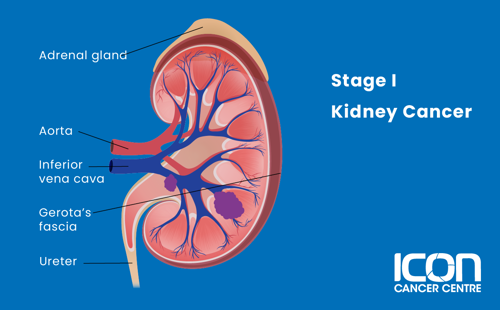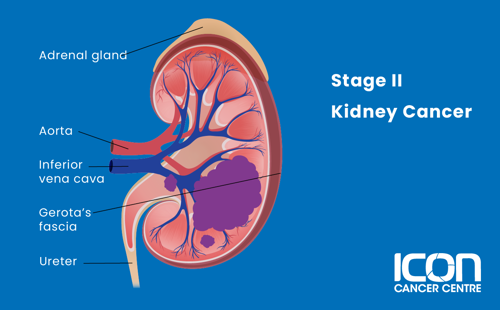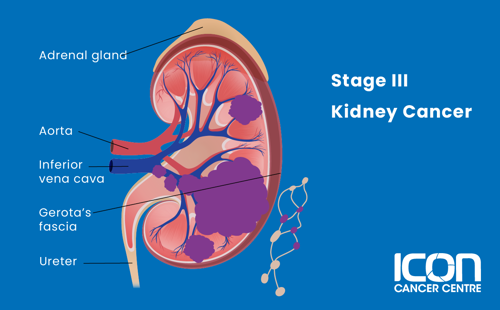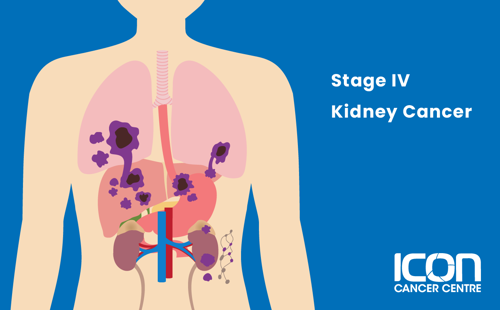Quick facts about kidney cancer
Kidney cancer is the seventh most common cancer in Australian men and women
The rate of survival after having kidney cancer for five years is 80%
The rate of survival has improved by almost 30% over the last twenty-five years
Types of kidney cancer
The kidney plays an important role in removing excess water, salt and waste products from the blood which then becomes urine, and helps control certain processes in the body such blood pressure.
Types of kidney cancer include:
-
Renal cell carcinoma
Renal cell carcinoma is a cancer that develops in the kidney’s filtration system (proximal renal tubules). This is the most common type of kidney cancer, accounting for 80% of all kidney cancer diagnoses.
-
Urothelial carcinoma
Urothelial carcinoma is a cancer that develops in the transitional cells which line the renal pelvis (where the ureters meet the kidneys). This accounts for 20% of all kidney cancer cases and includes Hürthle cell carcinoma.
-
Wilms tumour
This is a rare cancer that develops in the kidneys from the abnormal growth of early kidney cells, most commonly in children.
-
Renal sarcoma
Renal sarcoma is a rare cancer that develops in the connective tissue or blood vessels of the kidney. This accounts for less than 1% of all kidney cancer diagnoses.
Signs and symptoms of kidney cancer
As signs and symptoms for kidney cancer can be similar to other common conditions, it’s important to see your GP or healthcare professional if you experience any of the symptoms below. Discussing anything concerning as soon as possible can help give you peace of mind and offer the best chance of successful treatment if you receive a kidney cancer diagnosis.
Kidney cancer can be difficult to detect as there are often no symptoms during the early stages. However, as the disease progresses, symptoms may include:

Blood in urine

Pain or discomfort in the lower back or side

Unexplained weight loss

Fatigue

A mass or lump in the abdomen

Fever
Stages of kidney cancer
The TNM system is used to stage kidney cancer and and define what your cancer looks like. TNM stands for:
Tumour – The size of the tumour
Node – If the cancer has involved any lymph nodes
Metastasis – Whether the cancer has metastasised (spread) to other areas of the body.
The TNM information, along with other tests, helps determine the stage of your breast cancer using the guidelines below:
-
Stage I
The cancer is no larger than 7cm across and confined to the kidney.

-
Stage II
The cancer is larger than 7cm across and confined to the kidney.

-
Stage III
The cancer has grown into a major vein or surrounding tissue, but not the adrenal gland or beyond Gerota’s fascia. Alternatively, the tumour is any size and has spread the nearby lymph nodes but not beyond Gerota’s fascia.

-
Stage IV
The cancer has grown beyond Gerota’s fascia and may be growing into the adrenal gland. It may or may not have spread to nearby lymph nodes. Alternatively, the cancer has spread to distant lymph nodes and/or organs.

Treatment for kidney cancer
There are many different types of treatment for kidney cancer. Your treatment will depend on you and your cancer.




